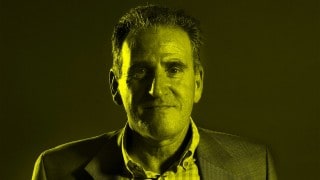Let’s suppose, for the sake of argument, that George W Bush reads The Independent. How would the President have reacted when he read the headline on page 4 of Tuesday’s edition? It announced: “Miliband goes to US to deliver ultimatum on climate change”. My suspicion is that Bush would have had another choking fit over his pretzels. In fact, he might have died laughing.
Miliband? Ultimatum? Our likeable Environment Secretary can’t even deliver a respectable ultimatum to his own colleagues: remember how he was squashed like a gnat by Gordon Brown three months ago when he floated the idea of hypothecated carbon taxes? Even supposing that George Bush is a man capable of changing his mind - and there is very little evidence of that - would this be the David to poleaxe the American Goliath?
The British media seem to have developed a dangerously Eurocentric view of the global politics of climate change. Another headline, this time over a weekend article by the doyen of British environmentalist writers, Geoffrey Lean, declared: “The world must isolate Bush over climate change.” The truth, as has become clear during the course of the G8 summit at Heiligendamm, is that it is Bush who has isolated Europe over climate change. Canada, China and even Japan have shown enthusiasm for Bush’s proposal to bypass the UN and hold a series of multilateral meetings - to be convened by America - which would seek agreement on mutually acceptable targets for CO2 emission reductions.
This ambush, not so much a cold shower as a diplomatic drenching for the summit hostess, Angela Merkel, should have come as no surprise. For some time now, the Americans have involved the major CO2-emitting nations in negotiations quite separate from the Kyoto process. This negotiating process also has a name, rather less well known in this country: it is called the Asia-Pacific Partnership on Clean Development and Climate. Essentially, it adopts the American idea of solutions relying on technology rather than taxes and carbon caps: new forms of energy efficiency, so-called “clean coal” and fuel cells are the sort of things the Asia-Pacific Partnership has been discussing.
It might seem astonishing to Europeans that the country which hosted the original Kyoto conference would entertain the American proposal. The reason is China. If any nation feels threatened by competition from China it is Japan. As the People’s Republic has rapidly become an economic colossus, on the verge of becoming the world’s biggest emitter of CO2, it is now unimaginable for Japan to handicap itself by subscribing to a policy which imposes much higher energy costs on its own businesses while leaving China free to do whatever it wants - and that was the consequence of Kyoto.
While Tony Blair has presented himself as being devoted to the Kyoto protocol, his remarks in a pre-summit interview on Wednesday show that he knows the real deal: “There are two political realities. One is that America will not sign up to a global deal unless China is in it and the second is that China will not sign up to a deal that impedes its economic progress. Unless you get these key players together sitting round the table and agreed, you will float back into a Kyoto-style process which may end up with a treaty at the end of it but does not include the big emitters.”
Blair is not exaggerating when he says that China will do nothing to impede its extraordinary growth. It is opening a new coal-fired power station at a rate of one a week. On Monday, the head of China’s state economic planning agency, Ma Kai, confirmed that his nation was not prepared to countenance any fixed targets for reducing its CO2 emissions, but also came up with a devilishly clever response to claims that it was not taking this matter seriously. Ma pointed out that his country had for years been taking steps to keep in check its carbon emissions. “Without China’s strict family planning policies, the country’s population would have increased by 138 million since 1979, resulting in an extra 330 billion tonnes in emissions.”
I have always thought China’s one-child policy to be a repulsive example of state coercion, but Mr Ma has a very good debating point, which doubtless was also made by his President across the table in Heiligendamm yesterday. After all, if you really care about anthropogenic carbon emissions then breathing is a much bigger issue than car exhausts. The burning of fossil fuels sends about seven gigatonnes of CO2 per year into the atmosphere. That sounds like a lot. Yet the biosphere sends about 1,900 gigatonnes of CO2 into the atmosphere annually. The oceans send a further 36,000 gigatonnes of CO2 into the atmosphere, all of which adds up to one big reason why some of us are sceptical about the extraordinary emphasis put on the role of human fuel-burning in the greenhouse gas effect.
In Heiligendamm the Europeans had expressed their summit objective not in terms of a specific reduction in industrial carbon emissions, but in terms of the temperature. “We must get agreement to limit the global temperature increase to 2 degrees C” was their constant refrain.
Presumably, this is based on a belief that a specific reduction in man-made CO2 emissions will result in a specific global temperature outcome. If you believe that there are no other factors contributing to the never-ending variations in the planet’s climate, then that makes perfect sense. To me, it seems a form of megalomania, both in its exaggeration of man’s significance and in its assumptions about the ability of politicians to change the weather - in the literal, rather than metaphorical, sense.
Yesterday’s G8 communiqué made no mention of a specific temperature target. It merely stated that the G8 “will consider seriously the proposal to halve emissions by 2050.” Yes, and every 1 January, I consider seriously going on a diet. If they don’t fall for that rubric, the European media will probably declare that Bush has “wrecked” the Kyoto process and bemoan the fact that there isn’t yet a Democrat in the White House. They seem to forget that the Senate voted 95 to 0 against ratifying Kyoto during the Clinton presidency. Nancy Pelosi, the new Democrat Speaker, travelled to Berlin just before the G8 summit, and while saying, “I hope the [US] administration will be open to listening to why it’s important to go forward, perhaps in a different way”, she studiously avoided endorsing Kyoto - to her hosts’ bitter disappointment.
The summit which was meant to breathe life into the Kyoto process has seen it expire. To adapt Monty Python: Frau Merkel resembles the stubborn pet shop keeper played by Michael Palin. This Kyoto process is no more. It has ceased to be. It’s expired and gone to meet its maker. It’s rung down the curtain and joined the choir invisible.
http://comment.independent.co.uk/columnists_a_l/dominic_lawson/article2631302.ece









